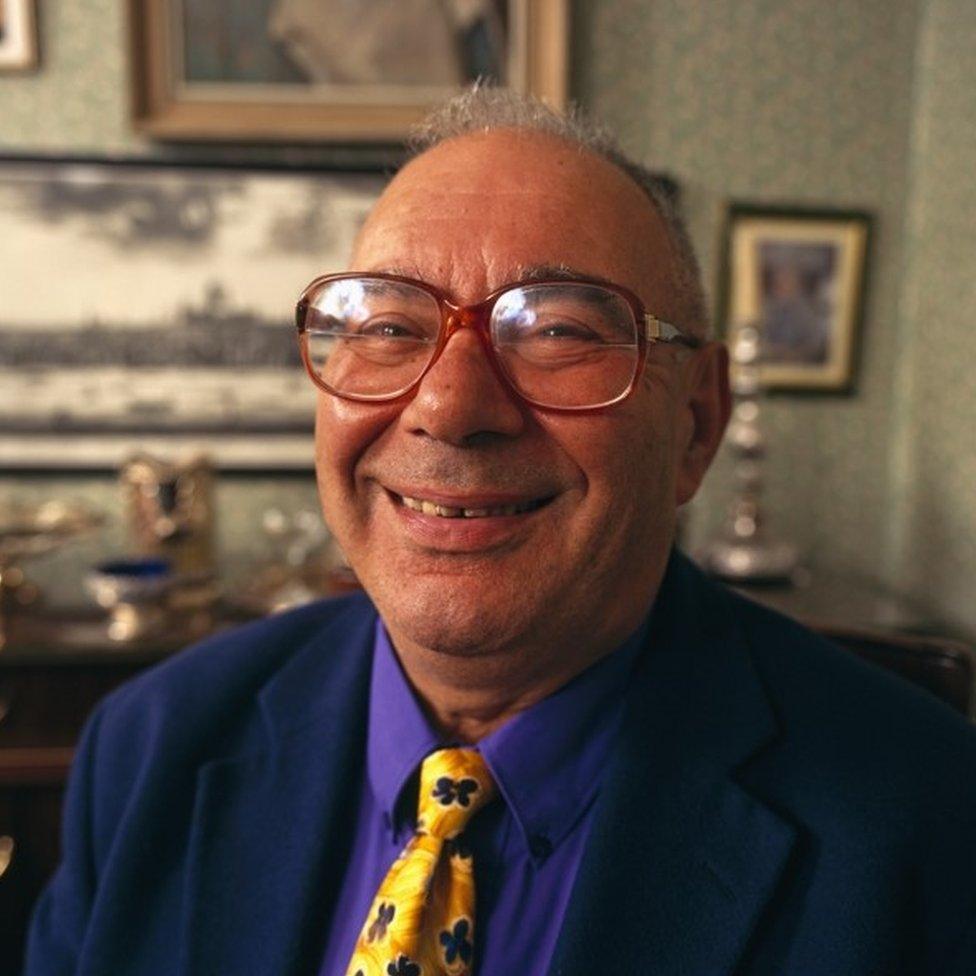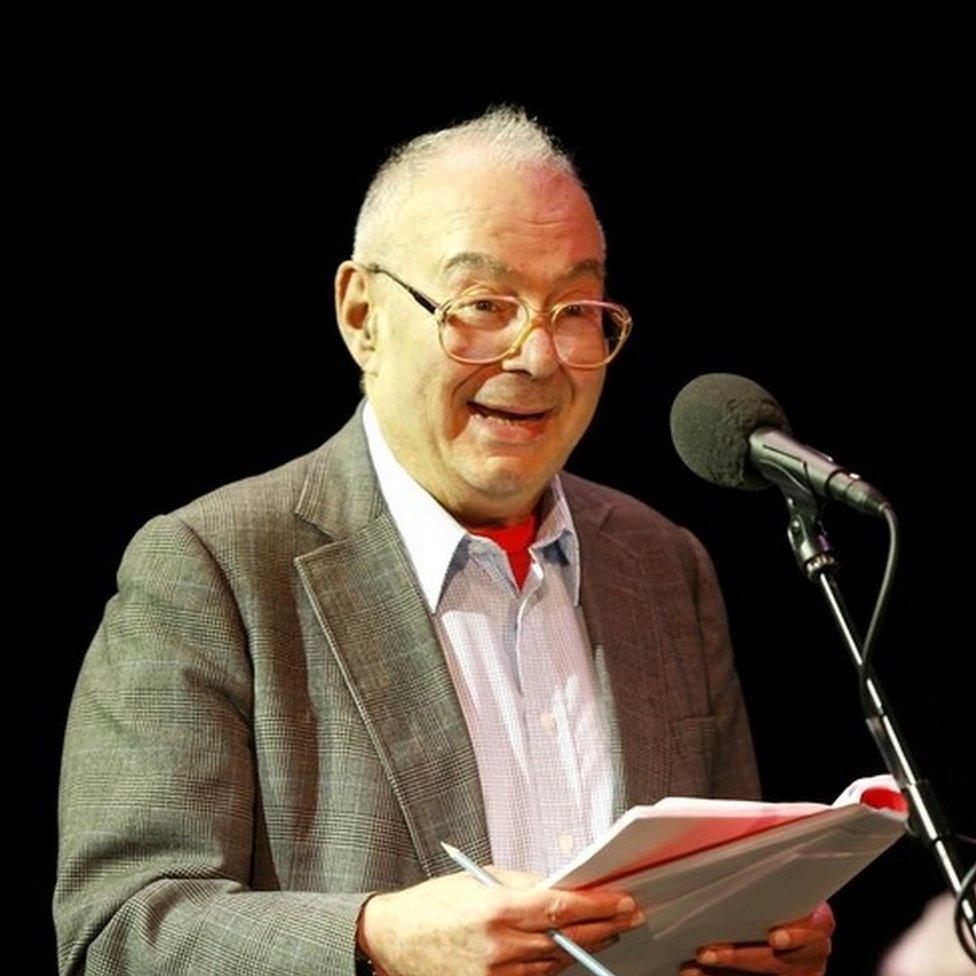Obituary: Rabbi Lionel Blue
- Published

Rabbi Lionel Blue's combination of wit, humility and compassion appealed to and entertained those of all beliefs and of none.
For nearly 30 years, he was a regular on BBC Radio 4's Thought for the Day, always ending his homily with a humorous story, often gleaned from experiences in his own Jewish community.
Lionel Blue was born in London's East End on 6 January, 1930, the son of a master tailor of Russian descent.
He was evacuated to a variety of places during the war and later went to grammar school in north London and then to Balliol College, Oxford, where he gained a degree in history.
He abandoned an early interest in theology for communism after hearing horrific stories from fellow Jews who had fled Hitler's persecution.
While at university, the realisation that he was homosexual drove him to a nervous breakdown, during which he tried to take his own life. He became attached to the idea of becoming an Anglican monk but rediscovered his own faith at a service in 1950.
After much agonising, he decided to become a rabbi, prompting his mother to remark that she had spend all her time trying to get him out of the ghetto and now he was jumping back in.

He managed to appeal to those of all religions and of none
He became the European director of the World Union for Progressive Judaism and, for many years, lectured at a rabbinical college in London.
Often distrusted by the Jewish establishment, Lionel Blue always described himself as a very reformed Rabbi. He had, in his own words, "jumped over the wall of my ghetto".
He liked meeting Christians, Muslims and people of other religions. Indeed, he went regularly into retreat at a Roman Catholic monastery, and he wrote for a Roman Catholic newspaper. This ecumenical approach enabled him to cross the barriers between those of different faiths.
He began openly discussing his sexuality with friends in the late 1960s and came out in 1980, the first rabbi to do so. He had several long-term relationships and, in his later years, therapy helped him to overcome the remains of his guilt.
Making sense of life, both his own and those of listeners, was a constant theme. He mixed his opinions on politics, usually the Middle East conflict, with homely advice on succeeding in exams, the loneliness of the new year, making up after rows and airport fatigue. It was this essential humanity that touched the hearts of listeners.
In his early seventies he suffered a series of small heart attacks, epileptic seizures and had surgery for cancer. But he dealt with his physical problems in typical style, taking a one-man show to the Edinburgh fringe and making light of them on Thought for the Day.